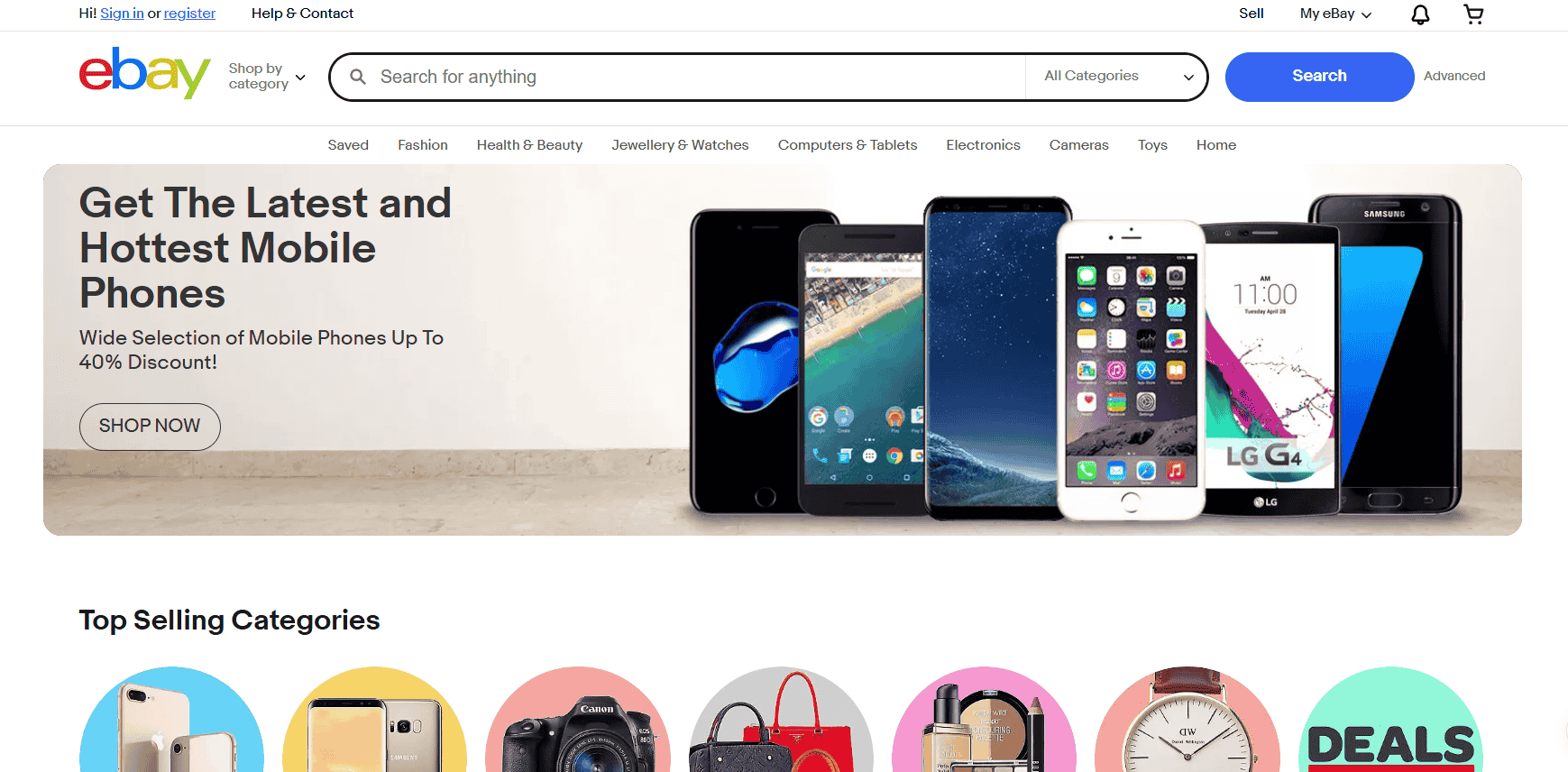You’ve launched your store, listed your products, and done everything you thought would attract customers. But the traffic isn’t coming. No traffic means no sales, and for a startup, that can be a serious roadblock.
This is where search engine optimization (SEO) becomes a necessity. If customers can’t find your store on search engines, they can’t buy from you. And while SEO often sounds expensive, the truth is, you don’t need a massive budget to see results. What you need is the right strategy tailored to your stage of growth.
I’ve worked with early-stage online sellers who started with minimal SEO budgets and still saw measurable increases in traffic and sales by focusing on the right optimizations. Affordable eCommerce SEO services for startups aren’t about doing less. They’re about doing what matters most, efficiently and effectively.
In this post, we’ll talk about what affordable SEO really looks like for startups and how to use it to grow your online store without overspending.
-
Affordable ecommerce SEO services can deliver real results for startups without requiring a large budget.
-
Startups should focus on optimizing product pages, blog posts, and collections to attract search traffic.
-
Traditional SEO agencies often overcharge and overcomplicate things that small businesses don’t need.
-
Tools like SEO Buddy and platforms like Fiverr Pro or Upwork can offer effective low-cost SEO solutions.
-
Consistent, targeted SEO actions—like keyword research and mobile optimization—can drive long-term traffic and sales growth.
Why Ecommerce SEO Is Essential for Startups
SEO is the process of improving your website so it ranks higher on platforms like Google. And when it comes to ecommerce, it’s not enough to rank your homepage. You want those money pages—your products, blogs, and collections—showing up where customers are searching.
Because let’s be real, people don’t search for your store’s name if they don’t even know you exist. They search for things like “affordable yoga mats,” “eco-friendly baby clothes,” or “handmade copper rings.” If your products aren’t showing up when people type those terms, then they’re buying from someone else. Simple as that.
A 2023 study by BrightEdge found that 68% of online experiences begin with a search engine. That means nearly 7 out of 10 shoppers start their buying journey on Google. So if your store isn’t ranking, you’re missing out and handing over your potential sales to a competitor.
SEO helps you in many ways. It allows your online store to get discovered by the right customers—people actively looking for what you’re selling. It also helps your content rank for high-intent, purchase-ready keywords that attract real buyers, not just window-shoppers.
With well-executed SEO, you can even lower your customer acquisition costs over time, so you’re not stuck spending money on ads forever. Plus, it helps you build long-term organic traffic that compounds, just like interest in a savings account.
Additionally, SEO keeps working even when you’re sleeping. It doesn’t stop when your budget dries up, unlike paid ads. Think of SEO like planting seeds in a garden. It takes time, that’s for sure. But with the right care, those seeds turn into traffic-generating machines.
Paid ads? They’re like renting a billboard: useful while it’s up, gone the moment you stop paying. SEO is the complete opposite.
When I was helping a startup client who sold handmade pet accessories, we focused on optimizing just five product pages using well-researched keywords. In 60 days, their organic traffic grew by 37%. No ads. No gimmicks. Just good SEO. That’s the kind of compounding growth every startup should aim for.
Why Traditional SEO Agencies Don’t Work for Startups
I’ve worked with plenty of early-stage online sellers. One of them, a sustainable skincare brand, told me they were quoted $2,500 a month for SEO services by a big-name agency. That was almost their entire monthly revenue.
And the worst part? The agency didn’t even guarantee anything tangible. Just vague promises about “improved visibility” and “enhanced domain authority.” Meanwhile, the client still had products sitting on virtual shelves, barely getting seen.
The problem isn’t just cost. It’s complexity. Traditional SEO agencies tend to operate like they’re still serving Fortune 500 companies. They bundle services you don’t need, use vague language to sound smarter than they are, and drown you in vanity metrics like bounce rate and domain rating, things that don’t always translate to actual sales.
One seller I worked with once received a 50-slide presentation full of charts and graphs, but had no idea which product pages needed fixing or what keywords to target.
Startups need clarity, not fluff. You need someone who can tell you, “Here’s how we’re going to get your handmade candles to rank when people search for ‘eco-friendly gifts.’”
You need flexible, budget-friendly SEO that zeroes in on the pages that matter most—your product descriptions, category pages, and mobile performance. Not 50-page audits packed with jargon, but a focused action plan that helps you get found, get clicks, and get sales.
If your SEO provider can’t explain their plan to you in plain English—or if the results don’t align with your sales goals—it’s not a service, it’s a bill. And startups can’t afford to pay for fluff.
What Affordable Ecommerce SEO Services Should Include
Affordable doesn’t mean bare-bones. It means focused, strategic, and smart with every dollar. You don’t need a thousand-dollar monthly retainer to start climbing the ranks on Google.
What you do need is a provider (or even a freelancer) who knows exactly where to look under the hood and what to fix, because not every shiny SEO promise will actually move the needle.
When you’re shopping around for SEO help, look beyond the fluff. Forget packages that throw in “AI enhancements” and “viral backlink campaigns” without context.
The best affordable ecommerce SEO services zero in on what actually helps you rank, convert, and grow, especially when you’re just starting out.
Here’s what that should include:
1. Keyword research focused on your products and niche
You want keywords that match what your customers are searching for, not just trendy search terms. If you’re selling eco-friendly kitchenware, “best eco spatula” will outperform generic terms like “kitchen gadgets.” The right keywords help Google understand what your store is really about.
2. On-page SEO for product titles, meta descriptions, and images
This is where a lot of new sellers miss out. Your product titles should include searchable terms your buyer is typing into Google. Same goes for image alt text and meta descriptions. They help with both search rankings and click-through rates.
3. Technical fixes for speed, mobile usability, and broken links
A slow website or one with broken links doesn’t just annoy users. It signals to Google that your site isn’t trustworthy. Mobile usability is huge too. More than 60% of online shopping happens on a phone, so your store needs to load fast and function smoothly.
4. Content strategy to support long-tail keyword targeting
You might not rank right away for “wedding dresses,” but you can absolutely rank for “lace wedding dresses under $300 for beach weddings.” That’s the magic of long-tail keywords. A good affordable SEO service will help you build content around those terms, usually through blog posts or optimized collection pages.
5. Structured reporting that tracks keyword rankings and traffic
If you’re paying someone, you deserve to see what’s working. A monthly report showing your keyword movement, top-performing pages, and where traffic is coming from keeps you in the loop and shows whether your investment is paying off.
I once helped a startup in the handmade jewelry niche—beautiful work, but their SEO was a mess. No keyword research, vague titles like “Gold Set #3,” and image files named “IMG_0034.jpg.”
We optimized just their product titles and meta descriptions to match what their audience was searching for, like “handcrafted birthstone necklace for moms.”

Within 3 months, their organic traffic shot up by 43%, and their conversion rate nearly doubled. They spent less than $300. No fluff. Just real results.
Here’s the deal: SEO doesn’t have to be fancy. It just has to be functional. Think of it like tuning a car. A Ferrari might be great if you’ve got the budget and a racing team.
But if all you need is a reliable engine to get you from A to B and fast, a well-tuned Toyota will get the job done. That’s what affordable SEO is: not flashy, but damn effective when done right.
Top 5 Affordable eCommerce SEO Services for Startups
Most of the startup founders I’ve worked with started small. They needed affordable ecommerce SEO services that fit their budget but still delivered real results.
The good news is that there are budget-friendly SEO solutions out there that actually work. You just need to know where to look and what to expect.
Here are five affordable options I’ve either used personally or recommended to my startup clients:
1. Fiverr Pro Freelancers
Don’t sleep on Fiverr. While the regular gigs can be hit or miss, Fiverr Pro is where vetted professionals live. You can find certified SEO pros offering services like keyword research, Shopify optimization, and technical SEO audits for under $200.
One of my clients hired a Pro freelancer for just $120 to fix metadata and internal linking on her product pages. And within a month, three of those pages started ranking on page one.
Just be sure to carefully review portfolios, look at verified reviews, and always message them before buying to confirm they understand your niche.
2. SEO Buddy
This is one of my favorite tools to recommend for the hands-on entrepreneur. SEO Buddy is a DIY SEO tool designed specifically for startups and small businesses. It gives you step-by-step checklists—almost like a “paint-by-numbers” guide—to help you optimize your site even if you have zero experience.
If you’re the type of founder who likes to learn and doesn’t mind rolling up your sleeves, this tool can save you thousands. It’s also great for teams who want to learn SEO without hiring a full-time consultant.
3. Fat Joe’s Blogger Outreach Services
Let’s talk about backlinks. If your store has great content but low authority, this is the fix. Fat Joe offers scalable blogger outreach services, meaning they help you get backlinks from real, relevant websites in your niche, starting at just $50. These aren’t spammy links either.
One of my clients in the home décor space used their outreach service and got featured on a lifestyle blog that brought in both traffic and sales. It’s a great way to build domain authority when you can’t afford a full-on PR agency.
4. Loganix SEO Packages
Loganix is great if you want affordable, one-time SEO services without getting locked into a monthly retainer. They offer SEO audits, keyword packages, and even done-for-you content briefs, all priced reasonably for startups.
I once had a client in the eco-friendly apparel space use Loganix for a full audit plus 10 content topic suggestions, and the insights we got were worth far more than what she paid. These services are ideal if you want quick SEO wins without the ongoing commitment.
5. Upwork Freelancers (with verified SEO skills)
Sometimes the best value comes from working directly with a freelancer. Upwork lets you search specifically for SEO experts with verified experience in Shopify, WooCommerce, and product-driven SEO.
I’ve had clients hire talented freelancers here for as little as $25/hour, and the key to success was always the same: make sure they understand ecommerce SEO, not just general blog optimization.
Ask about past clients, portfolio samples, and how they approach product page optimization. When you find the right fit, it’s like having an SEO partner without the agency markup.
DIY SEO Tips for eCommerce Startups on a Budget
Not ready to outsource? That’s okay. Many startups bootstrap their way to their first 100 sales using free tools, creativity, and a bit of grit. You don’t need to be an expert or spend a fortune to start showing up on Google.
I’ve worked with online sellers who couldn’t even afford a logo in the beginning, but they learned how to optimize their store piece by piece, and that’s how they built momentum.
Start with the basics. Use Google Search Console to monitor your site’s performance and fix indexing issues.
This tool is your best friend. It shows whether Google can crawl your site properly, which pages are being shown in search results, and what people are actually typing in to find your store. If you’re invisible to Google, this is where you’ll find out why, and more importantly, how to fix it.
Next, optimize every product page with unique product descriptions. Don’t just copy and paste the manufacturer’s text. Google penalizes duplicate content, and more importantly, generic descriptions don’t sell.
I’ve seen sellers rank five times higher just by rewriting bland, boilerplate blurbs into keyword-rich copy that actually speaks to their target audience. Make your descriptions specific, make them sound human, and sprinkle in the right keywords naturally.
Another powerful move is to add long-form blog content targeting long-tail keywords like “best gifts for tech-savvy dads” or “eco-friendly jewelry for weddings.” Blog posts help you rank for the kinds of phrases people type into Google before they’re ready to buy.
These keywords tend to have less competition and a much higher intent to purchase. One client of mine wrote a blog post called “5 Minimalist Wallets for Digital Nomads,” and it brought in more organic traffic than all their paid ads combined.
To uncover those kinds of keywords, use tools like Ubersuggest or AnswerThePublic. They’re perfect for spotting opportunities, keywords with good search volume and low competition. You can turn those insights into better product titles, blog headlines, or even FAQ pages that help your site rank higher.
Lastly, try HARO (Help a Reporter Out) to get featured in articles and build free backlinks. Journalists are always looking for business owners or experts to quote, and if you can tell your story well, you can land mentions on some pretty big sites.
And yes, backlinks still matter. They help build your store’s domain authority and make it easier for Google to trust your content.
SEO isn’t about doing everything. It’s about doing the right things, consistently. One well-written blog post each week. One optimized product page each day. One good backlink each month. If you stick with it, the results add up, and they compound over time.
Is Going Cheap Worth It?
I’ve seen startup founders make the mistake of thinking SEO is either too expensive or too slow to matter. But that’s just not true. SEO doesn’t have to be a luxury reserved for the big players with bottomless marketing budgets.
You don’t need an agency that charges more than your rent. You need smart, targeted SEO services that actually fit your business goals and your budget.
In fact, most of the successful online stores I’ve worked with didn’t start with fancy SEO firms or six-month contracts. They started small.
One of my clients, a niche apparel startup, spent just $150 on an SEO audit and used that checklist like a roadmap. Within a few months, their product pages were showing up on Google, and traffic started trickling in, not from ads, but from real searches. And that trickle turned into steady sales.

They didn’t try to do everything at once. They focused on what mattered: optimized product pages that spoke their customers’ language, mobile-friendly sites that didn’t take forever to load, fast load times that Google loves, and strategic blog content that answered real questions buyers were searching for.
These are the kinds of affordable ecommerce SEO wins that move the needle without burning a hole in your pocket.
If you’re serious about building something long-term, start investing in SEO now, even if all you can afford is a few hours of consulting or a one-time audit. That one step can give you clarity, direction, and a plan that actually works.
Just make sure you’re building on solid ground. Because in the end, SEO isn’t a cost. It’s an asset. One that grows in value every time someone clicks on your product instead of a competitor’s.







